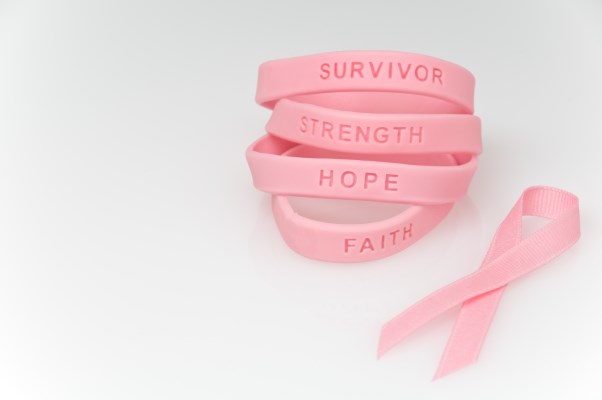Slide 1 of 4: Introduction

Author: Mallory Malkin
Press the Next button to start this activity
Slide 2 of 4: Coping with Cancer and Finding Resilience
This video discusses the importance of positive responses to stressful situations and how feelings of resilience have positive health outcomes overall. There is a powerful impact when one finds meaning to their illness or circumstances and from that they are able to find the strength to persevere and survive.
- Chapters
- descriptions off, selected
- captions settings, opens captions settings dialog
- captions off, selected
This is a modal window.
Beginning of dialog window. Escape will cancel and close the window.
End of dialog window.
This is a modal window. This modal can be closed by pressing the Escape key or activating the close button.
This is a modal window.
Coping with Cancer and Finding Resilience
WOMAN: One of my favorite things [INAUDIBLE] well, if that happened to me, I would just die. Well, you know, you don't get to die. You have to wake up every morning and go, OK, today I have doctor appointment, radiation, blah, blah, blah, blah, blah. And you don't get to hide from it. You don't get to. You can take walks all day long, but it's still there when you come home.
PAUL PEARSALL: For years, psychology has researched resilience. Resilience means to bounce back, to come back to where you were. A very important concept.
JAMES M. JONES: I think resilience has become one of the major kind of research questions that people have about people in difficult circumstances. What doesn't kill me makes me stronger.
WOMAN: Partly through the work that I've done with the group, there have been such good things. I think we all went through a process of winnowing our lives. I think this is something that everybody did that I saw. We all started taking a look at our lives and going, all right, what's important?
ANNE COSCARELLI: Those women were very invested in life. They were invested in living. And they were invested in taking this cancer experience, which is extraordinarily difficult, and they wanted to turn it into something good. And they did. And you have to believe somewhat in the power of that and how that can be healing for the soul and healing for the body.
PAUL PEARSALL: So these people could give some sense of meaning to what happened to them. It may be spiritual, religious, political, biological, family. But they could explain it. They would come up with a reason. And it didn't matter if it was valid in your opinion or mine, but it worked for them.
MARGARET KEMENY: People who were actually able to take a life-threatening illness and find meaning from that experience, those individuals seem to do better physiologically and health-wise than people who can't.
WOMAN: Something very cool my oncologist said to me was, if you can take the energy that your body has put into building these tumors and have it for yourself again, aren't you going to feel great? And her words eventually came true. But it took a lot longer than I really ever thought I would.
MARGARET KEMENY: So there's something important there about positive responses to stressful circumstances that I think is really, really critical to examine. And I think also thinking about interventions that can promote meaning and some of these positive reactions. There's a number of studies now and a lot of work being done to try to determine, can these interventions actually have a beneficial effect if they do engender a stronger sense of meaning? So that's a very important area, I think.
Slide 3 of 4: Check Your Understanding
Instructions:
Answer the questions based on the video and your reading of the chapter.
Slide 4 of 4: 1.1 Activity Completed!
Congratulations! You have completed this activity.